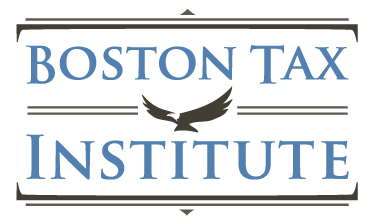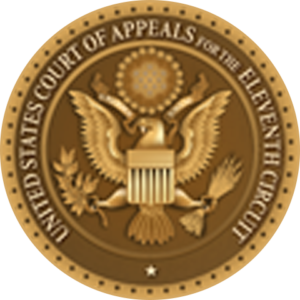Considering how soon Halloween comes after October 15 (October 16 in 2023), the extended due date for individual returns, having a tax horror story now seems really appropriate. The horror story came out on October 24 with the Eleventh Circuit decision in the case of Lee v US. Dr. Wayne Lee seemed to have done everything right to be in compliance. His estimates overpaid his taxes every year and he would let the refund ride into the next year. He hired a CPA to prepare his returns and dutifully signed and sent the CPA Form 8879 IRS e-file Signature Authorization. He did this for his 2014, 2015, 2016 and 2017 returns. Then disaster struck.
The Unexpected Visit
On December 5, 2018 IRS Revenue Officer Judy Arpino visited the doctor’s office. She was looking for his returns. Doctor Lee had not heard from the IRS about returns not being filed, because his CPA had not updated his address.
Doctor Lee contacted the CPA who provided paper copies of the returns. Dr. Lee signed the returns and gave them to Ms. Arprino. Ms. Arpino processed the returns as being filed in December 2018. Given that they were all refund returns you might think that would be the end of the story. Unfortunately the 2018 filing made the 2014 return so late that Dr. Lee did not get credit for that refund. That cascades into subsequent years creating penalties. He ended up owing $369,996.84 including $78,630.86 in failure to file and failure to pay penalties.
The CPA had not followed through on the electronic filing. He claimed that Dr. Lee’s return was too complicated for his software to handle, which frankly strikes me as kind of preposterous. I am not including his name in this piece, although you will find it if you follow the link to the opinion. As it happens it is a pretty common name and there are several CPAs who bear it. It’s not as bad as having the same name as somebody who confessed to murdering his mother like I do, but it’s bad enough.
No Excuse
Doctor Lee sued for refund in district court. Losing there he appealed to the Eleventh Circuit. The appellate judges had their hands tied by a 1985 Supreme Court decision – US v Boyle. Boyle had hired a lawyer to prepare an estate return. The lawyer kept reassuring him it was being taken care of, but it ended up being three months late. The court in its ruling against Boyle was unanimous. The opinion delivered by Chief Justice Burger indicated that they were creating a “bright line” test. Having delegated to an agent does not relieve the taxpayer of the obligation to file timely.
Dr. Lee’s situation seems quite a bit different and he seemed to be getting a bit of sympathy from one of the judges in the oral arguments. Here they are if you want to listen. There are about forty seconds of paper shuffling at the beginning, so be patient. In the end he conclusion was that:
“The duty to file tax returns on time lies with the taxpayer, not the agent, and it remains invariable whether e-filing or paper filing. Unfortunately, Lee blindly relied on his agent to his detriment. We cannot say that such reliance, without more, amounts to reasonable cause under Section 6651(a)(1).”
Lot’s Of Blind Reliance Out There
Judge Barbara Lagoa filed a concurring opinion. She agreed that the “bright line” test of US v Boyle applied to electronic returns, but she wanted to take the opportunity to highlight the risks facing taxpayers who rely on accountants to e-file their returns.
“Taxpayers therefore must understand (and likely may not) that, under current law, even if they sign the Form 8879 and have an accountant’s assurances of filing, they can still be liable for an accountant’s failure to file. In other words, under Boyle’s bright line rule, the responsibility lies with the individual taxpayer to confirm the submission of their tax return to the IRS. And under Boyle’s bright line rule, it is not clear whether Lee would be excused from penalties even if his accountant affirmatively misrepresented to him that his returns were filed on time. When it comes to return filing deadlines, the taxpayer is essentially alone.” (Emphasis added)
I found this decision a little disturbing, although actually it should not be surprising as Justin Schegel pointed out
This is the only way to rule consistently with Boyle. It should come as no surprise.
— Justin Schwegel (@jlschwegel) October 28, 2023
I did one of my surveys of #TaxTwitter and got quite a response.
#TaxTwitter – Preparers do you provide your clients with proof that IRS accepted their return
— Peter Reilly (@peterreillycpa) October 27, 2023
Under the decision, though, it does not appear that getting an acknowledgment from your preparer that they followed through with the electronic filing does you any good in the event that they didn’t follow through. This ended up creating a bit of a debate in my household.
The Debate
It is a bit embarrassing to admit that I don’t prepare my own return. As it happens I live with my preparer, Evelyn Pless. Evie has this little freebie practice. Besides herself and her numerous adult children and now a grandchild it includes me. She uses Drake which is considered a household expense so I do contribute. I also serve as the practice’s research chief and return reviewer, so there is that. Anyway, she is one of the best practical accountants I have ever known.
So how do I know for sure that she electronically filed my return? Well she can print out Form 9325 – Acknowledgment and General Information for Taxpayers Who File Returns Electronically. Only it seems to me that that is coming from Drake. Why should I trust them?
Here is what we did.
We went to irs.gov. Then we selected – Get your tax record. From there we go to Online Account. I am not going to guide you through it, because I have found this for you.
I went through it this morning, but I had Evie helping me along. Apparently you can do it with just a smart phone, but it is easier to have a computer and a smart phone. You need to have a drivers license or a passport handy. In the end I was able to get a transcript of my return, which verifies not only that it was filed, but I can also compare it to the return that I thought was filed.
Evie and I ended up having a sort of debate. She figures that almost nobody is going to go through this process, because they trust their preparers. If Dr. Lee had not been rolling forward substantial refunds, it would have been pretty much no harm, no foul. Also he had the failure to register the address change compounding thing. Still if I were running a family office I would start pulling transcripts of each return and comparing them with what the accounting firm gave us with Form 8879. There must be people who do that, even though I was today years old when the idea occurred to me.
Makes No Sense
Given that the IRS is trying to encourage electronic filing and that they would get absolutely slaughtered if we all went back to paper filing, the position that they took with Dr. Lee made no sense. You have to remember Reilly’s First Law of Tax Planning – It is what it is. Deal with it. It is great that you trust your tax preparer, but remember what Ronald Reagan said. Trust, but verify.
——————————————————————————————-
Originally published on Forbes.com.
For great value continuing professional education. I recommend the Boston Tax Institute

You can register on-line or reach them by phone (561) 268-2269 or email vc@bostontaxinstitute.com. Mention Your Tax Matters Partner if you contact them.
For articles oriented toward tax professionals check out Think Outside The Tax Box.
































































































